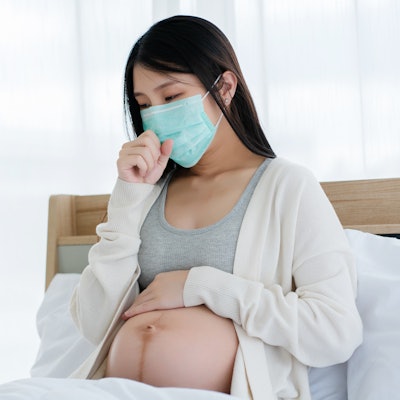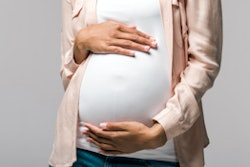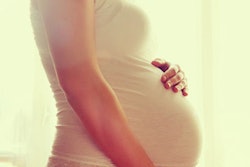
Dental teams should be ready to answer their pregnant and postpartum patients' questions about COVID-19 vaccines and explain that it's likely best to get vaccinated as soon as they are eligible, according to a webinar hosted by the ADA on March 17.
There is no evidence demonstrating that vaccination negatively affects pregnancy, breastfeeding, or fertility, said presenter Dr. Geeta Swamy, a maternal-fetal specialist who is associate president for research and vice dean for scientific integrity at Duke University. Instead, pregnant women are at an increased risk of severe COVID-19 illness.
"It's important to immunize pregnant women," Swamy said during the webinar, titled "Oh Baby! COVID-19 Vaccine Facts on Pregnancy and Fertility."
Pregnant patients with symptomatic COVID-19 are at an increased risk of more severe illness, including admission to intensive care units, the need for ventilation, and death, compared with nonpregnant peers, Swamy said. Comorbidities such as obesity and diabetes further increase these risks, she added.
Swamy acknowledged the hesitation by some to get vaccinated, citing the misinformation that continues to circulate and the fact that pregnant women were not included in vaccine trials, despite the women's health community advocating for them to be included.
Nevertheless, Swamy said, "I think we are closer to saying pregnant women should get the vaccine versus they can get the COVID-19 vaccine."
What to tell pregnant patients
Patients need to know that when they are pregnant, their bodies undergo immunological changes that make them more susceptible to infection-related morbidity.
"When a woman gets pregnant, the immune system that we have recognizes things that are foreign to our body," she said. "A fetus is foreign to our body because half of the DNA is not ours."
Immunization also decreases the inflammatory immune response to diminish fetal rejection, and all vaccines have the potential to protect mothers against infection during pregnancy and for the rest of their lifetime, Swamy added.
Though these factors are important, she noted that being pregnant does not put women at higher risk of getting COVID-19. But she warned that getting COVID-19 could lead to worse outcomes for pregnant women.
Despite the uncertainty, it is promising that 51,130 expectant mothers in the U.S. have been vaccinated as of March 15, 2021. Of those, 3,215 have enrolled in the U.S. Centers for Disease Control and Prevention's v-safe COVID-19 vaccine pregnancy registry.
The women enrolled have agreed to provide information about their pregnancies and their infants' health via phone calls and medical records. They will provide the data while they carry their children and up to three months' postpartum, she said.
"This is really good, and we know that number is probably higher," Swamy added.
What to tell lactating women and couples trying to conceive
Based on the mechanism of action of the vaccines, there is no risk for lactating women or their infants, Swamy said.
"Therefore, lactating people may choose to be vaccinated," she said. "There's no concern from a safety perspective."
Currently, there is no evidence that any vaccines, including COVID-19 vaccines, cause fertility problems. Swamy said she has received several frantic calls from women who have received a vaccine and then found out they were pregnant. But there is no cause for alarm, and no one needs to avoid pregnancy after being vaccinated, she explained.
"There is no evidence that any vaccines cause problems with fertility in women and men," she said.




















